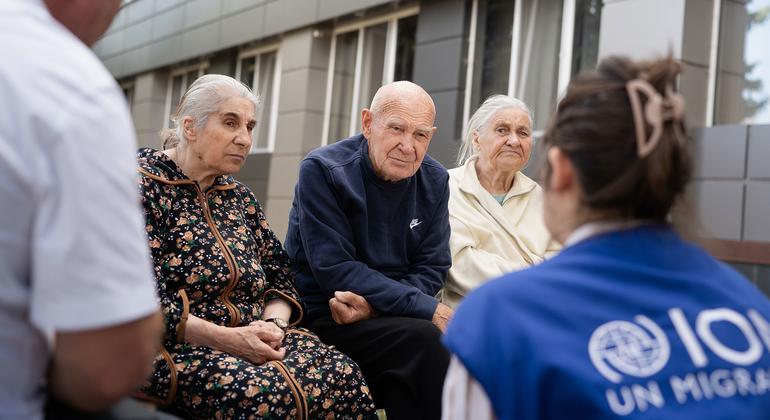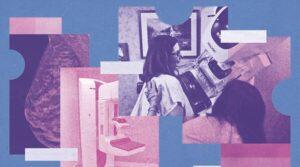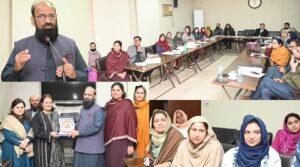“I saw people fleeing, so I joined them,” Yuri, 88, remembers the day he left Ukraine. “I arrived in Moldova alone, with no family or children to turn to.”
Most days, Yuri spends time in the courtyard of a community mental health center in Chisinau, participating in therapeutic activities that help him manage his emotions and loneliness.
“I feel good here, but in Moldova everything is new for me,” he says. “Sometimes it’s fun to be downtown. I also talk to people who stay here, but I don’t really have friends. Maybe it’s because I’m older.”
Attacks on Ukraine continue to intensify and devastate civilian infrastructure.
Not far from Yuri, Ana, 73, often sits with her friend Alla, 79. Originally from Moldova, Ana had lived in Odessa before the war, working as a cleaner at a university.
“I liked cleaning,” he says. “When I was a child, I always helped my mother, as she needed support to take care of my younger brother.”
When the war began, Ana’s family urged her to return to Chisinau. Although she was reunited with her family, she struggled with sadness, anxiety and depression, and eventually agreed to receive therapy.
Admitted in July 2023 with severe anxiety, insomnia, and restlessness, Ana gradually improved through counseling, art therapy, walks, and group activities.
“I found my home here,” he says. “Now I’m not afraid anymore.”
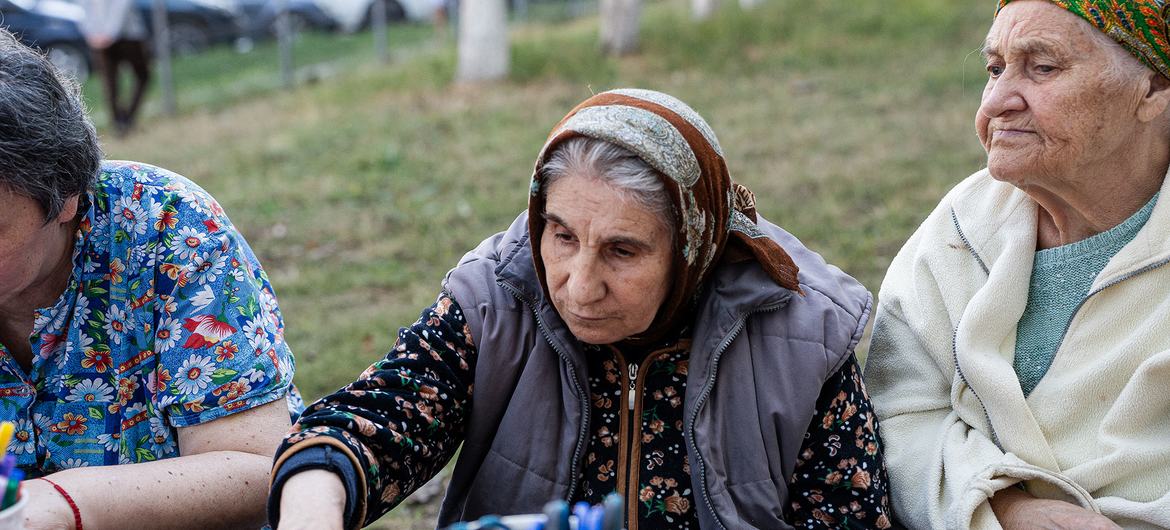
Ana (center) sits with other older women who have sought support in the center of Chișinău.
Also at the center is 25-year-old Marharyta, known as Margo. Originally from Ukraine, she arrived in Moldova a year ago and has struggled with eating disorders since she was 15 years old.
When her condition worsened a few months ago, she realized she could no longer manage on her own and sought help.
In Ukraine, Margo earned a bachelor’s degree in applied mathematics, then taught children and worked as an analyst. The war forced her to leave her family and her job behind, leaving her insecure about her future.
“I never wanted to ask my family for help because I thought I was strong enough,” she says. “I was wrong. When I got here, I realized that there are people willing to support me. Never be afraid to ask for help.”
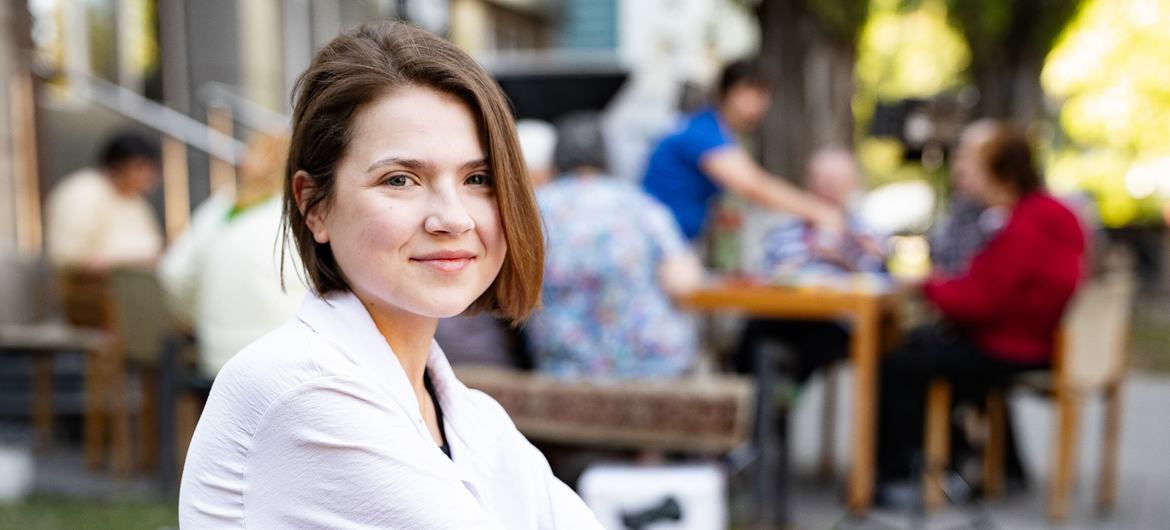
The Chișinău center offers Margo a safe place to share her experiences and find support.
Since the war began in February 2022, Moldova has been affected by thousands of Ukrainians crossing the border in search of safety.
Speaking ahead of World Mental Health Day, celebrated annually on October 10, Arkady Astrakhan, director of the Chișinău Community Mental Health Centre, said: “Authorities mobilized in different sectors to coordinate the country’s response. That included the establishment of mental health services.”
Since 2023, the International Organization for Migration (IOM) has been supporting the center by expanding specialized mental health and psychosocial support services (MHPSS) for Ukrainians, including mobile teams, counselling, social activities, art therapy, accommodation for vulnerable groups and an addiction recovery programme.
IOM provides almost 90% of the centre’s services, ensuring care for those with complex needs, supported by staff training in burnout prevention and psychosocial support.
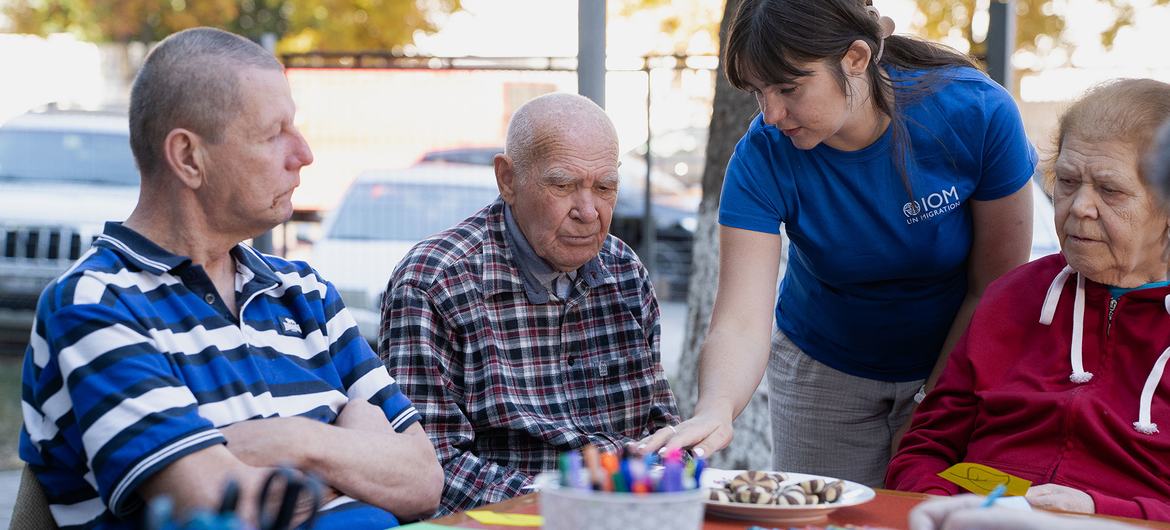
Seniors uprooted by war in Ukraine access counseling in Chișinău, Moldova.
“Although new measures were introduced to provide medical care to displaced people from Ukraine, those living with chronic or severe mental health conditions still faced serious gaps in services.
“IOM has played an important role in addressing these gaps,” says Astrakhan. “Supporting people with such complex needs can be challenging, but it is also deeply meaningful.”
One hour from Chișinău, the renovated IOM Mental Health Center in Orhei offers personalized support to people with serious mental illnesses.
Since the war began, 1,080 Ukrainians in Moldova have received specialized mental health support from IOM, with peer-to-peer initiatives led by health mediators connecting them to timely care.
In Moldova’s community centers, resilience takes many forms. For Yuri, it’s the small conversations that make him feel less alone. For others, it’s in therapy sessions or the comfort of knowing that support is nearby.
Together, their stories remind us that even in the shadows of war, healing is possible.

